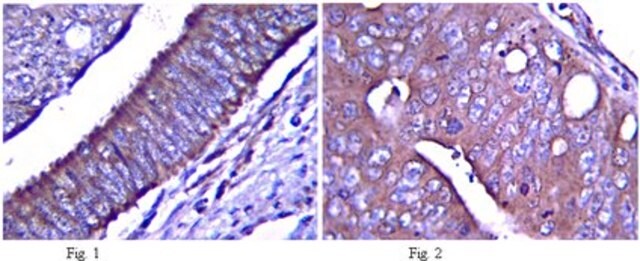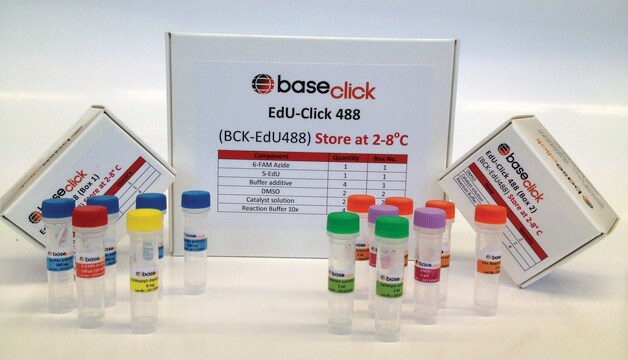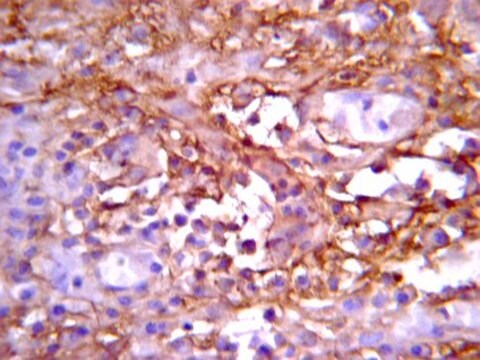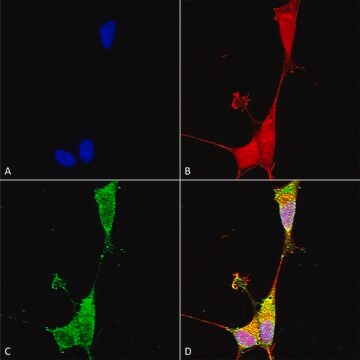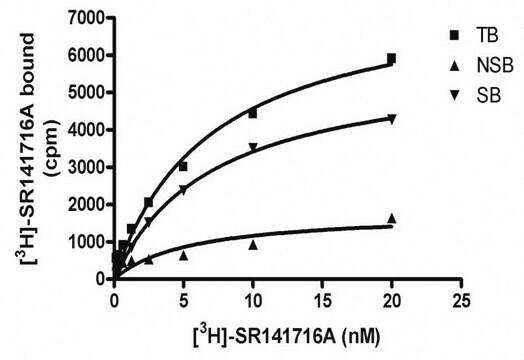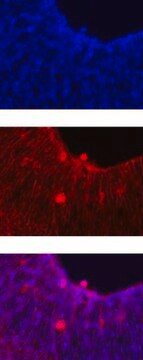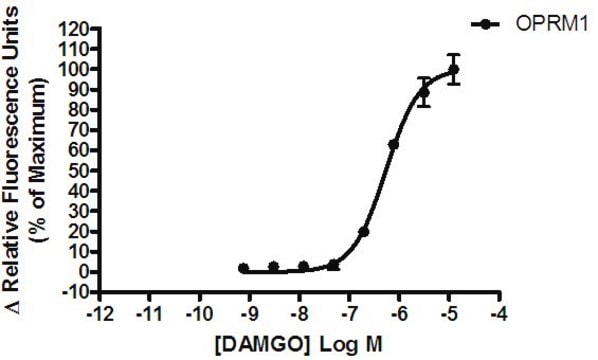MAB5414
Anti-Notch 1 Antibody, extracellular, clone 8G10
culture supernatant, clone 8G10, Chemicon®
Synonyme(s) :
Motch A, mT14, p300
About This Item
Produits recommandés
Source biologique
hamster (Syrian)
Niveau de qualité
Forme d'anticorps
culture supernatant
Type de produit anticorps
primary antibodies
Clone
8G10, monoclonal
Espèces réactives
mouse, rat
Fabricant/nom de marque
Chemicon®
Technique(s)
flow cytometry: suitable
immunohistochemistry: suitable
western blot: suitable
Isotype
IgG1
Numéro d'accès NCBI
Numéro d'accès UniProt
Conditions d'expédition
wet ice
Modification post-traductionnelle de la cible
unmodified
Informations sur le gène
human ... NOTCH1(4851)
Catégories apparentées
Description générale
Spécificité
Immunogène
Application
Epigenetics & Nuclear Function
Transcription Factors
Immunohistochemistry on paraformaldehyde fixed frozen tissue sections.
Flow Cytometry
Optimal working dilutions must be determined by end user.
Liaison
Forme physique
Stockage et stabilité
Remarque sur l'analyse
POSITIVE CONTROL: brain, lung, thymus.
Informations légales
Clause de non-responsabilité
Vous ne trouvez pas le bon produit ?
Essayez notre Outil de sélection de produits.
Code de la classe de stockage
10 - Combustible liquids
Certificats d'analyse (COA)
Recherchez un Certificats d'analyse (COA) en saisissant le numéro de lot du produit. Les numéros de lot figurent sur l'étiquette du produit après les mots "Lot" ou "Batch".
Déjà en possession de ce produit ?
Retrouvez la documentation relative aux produits que vous avez récemment achetés dans la Bibliothèque de documents.
Notre équipe de scientifiques dispose d'une expérience dans tous les secteurs de la recherche, notamment en sciences de la vie, science des matériaux, synthèse chimique, chromatographie, analyse et dans de nombreux autres domaines..
Contacter notre Service technique